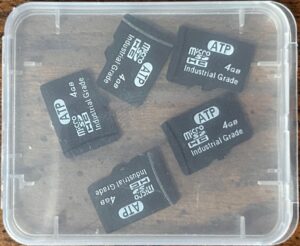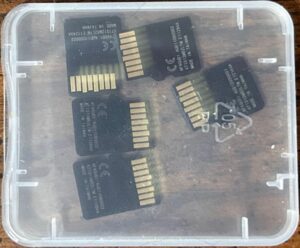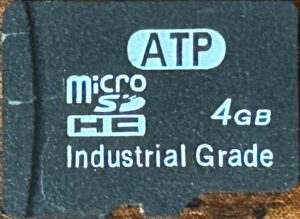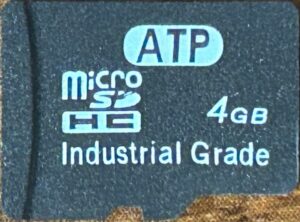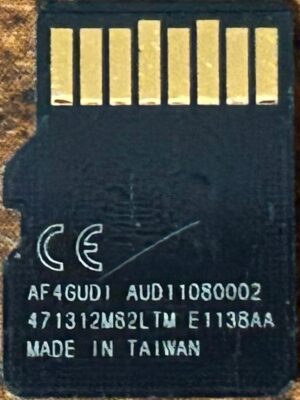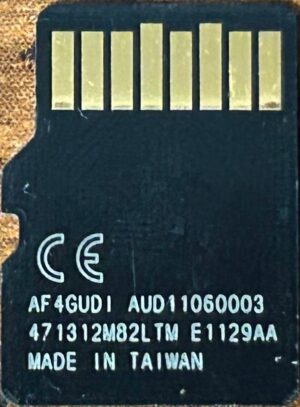- Obtained from: AliExpress
- Price paid: $6.08
- Advertised capacity: 4GB
- Logical capacity: 4,125,097,984 bytes
- Physical capacity: 4,125,097,984 bytes
- Fake/skimpy flash: No
- Protected area: 33,554,432 bytes
- Adjusted skimp: -3.97%
- Speed class markings: None
- CID data:
- Manufacturer ID:
0x09 - OEM ID:
0x4150(ASCII:AP) - Product name:
0x4146205544(ASCII:AF UD) - Product revision:
0x10
- Manufacturer ID:
Discussion
I don’t remember exactly how I came across ATP as a brand name — I think it may have been while searching for microSD cards on Digikey. Unfortunately, even the cheapest of ATP’s cards would have been out of my budget. I eventually landed on some being sold on AliExpress. Funnily enough, I had to order them twice: the first time, the package made it partway into the US before the the USPS decided that it didn’t have enough postage and that it wasn’t going to be delivered. (I didn’t even get a “postage due” notice…) Fortunately, AliExpress refunded it and I was able to reorder it. (And when I went to reorder it, I discovered that it was cheaper to order a 5-pack instead of three individual cards.)
These cards were packaged in a simple plastic case. As you can see from the picture, this wasn’t even a microSD card case — it was just a simple plastic box, and the cards were allowed to float around inside. Although it’s not unusual for such cards to be sold without retail packaging — they’re being sold to industrial customers, so the packaging would just be unnecessary waste — the fact that they weren’t packaged in a case suitable for microSD cards seems just…lazy.
I’m not 100% convinced that these are authentic, but at the same time, I’m not 100% convinced that they’re fake. (And in this context, I’m referring to the authenticity of the cards themselves — whether they are genuine ATP products or knockoffs.) So far it seems that their performance is pretty atrocious. But then again, knockoff manufacturers don’t usually bother trying to make the CID register look authentic. If it is authentic, it’s old — the CID data on the two cards that I’ve tested so far indicate that they were manufactured in 2011 — which would explain why I was able to get it for so cheap. It could be that these are used cards that are being resold.
I reached out to ATP to ask if they could authenticate the card, but as of this writing, I haven’t heard back from them.
On the endurance front:
- Sample #1’s first error was a string of two write failures — one 512 sectors long, the other 1,536 sectors long — during round 3,624. It has survived 8,080 read/write cycles in total so far.
- Sample #2 has survived 5,318 read/write cycles so far and has not yet experienced any errors.
- Samples #3-#5 are still in the package, waiting to be tested.
December 4, 2024 (current number of read/write cycles updates automatically every hour)

